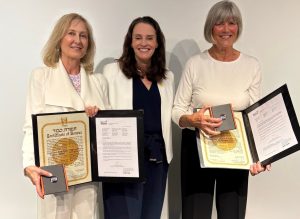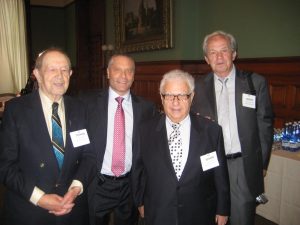Last summer, The CJN reported on our investigation into the possible administration of substances to women in Auschwitz, which led to them developing amenorrhea (the secession of menstruation), as well as cases of miscarriages and infertility.
In response, we began receiving phone calls from survivors of Auschwitz (as well as calls and emails from children of survivors). Like us, they were trying to make sense of a set of events that have barely been mentioned, let alone understood, in the history of the Shoah.
Some of our colleagues have questioned the utility of this endeavour, reasoning that if it had actually happened, we would have known about it by now. Indeed, from what we have found to date, there are no references to these horrendous acts in numerous filmed testimonies of survivors. However, the absence of evidence does not constitute the evidence of absence.
Why does this subject still remain a mystery? We have asked this question of the women who contacted us to describe their experiences in Auschwitz and whose previous testimonies make no reference to menstruation or infertility. They told us that no interviewer ever asked them such “sensitive” questions.
Of the many dozens of women who contacted us, 100 per cent had ceased menstruation immediately after their arrival in the concentration camps. We were rather surprised to hear this not only from survivors of Auschwitz, but also from survivors of Bergen Belsen, Ravensbruck, Theresienstadt and other camps. For the duration of the war, they were terrified that they were “not women anymore.”
We heard identical descriptions of amenorrhea from Polish Jews who had been incarcerated in the ghettos and obviously malnourished before even being deported to the death camps, as well as from Hungarian Jews, who were not rounded up until March 1944. Despite nutritional and body mass index differences, their reports are eerily and disturbingly alike. Many did not menstruate again until years after the war. Most had repeated miscarriages. Some never conceived and instead adopted, or attempted to adopt, children.
Each had suspected that some substance administered to them upon arrival in the camps, whether by injection or orally, had caused their immediate amenorrhea and subsequent difficulties with fertility. Most of them sought out medical help after the war, because they had yet to regain their menses. Others went to see physicians because they were having great difficulty conceiving.
The physicians they consulted had only limited answers. Some suggested that these women were suffering from psychosomatic trauma, which was interfering in their menstrual cycles. Often women were told directly that it must have been “something” done to them in the camps, but with no information as to what that might have been or how to undo its effects, there was little that could be done.
Other than their husbands or their physicians, they told no one of their sorrow and infertility – not even their fellow survivors, though their observations on who among their family and friends conceived and who did not were an important part of their recollections.
READ: THE NAZIS’ LESSER-KNOWN HUMAN EXPERIMENTS
We continue to search for first-hand accounts and answers for these women and their descendants, to determine what was administered to them and what effects it might have on future generations. This information needs to be gathered quickly – there’s limited time left to link what was forced upon these women at Auschwitz to long-term medical complications. Please help us in this endeavour.







